Planxty is an Irish folk music band formed in January 1972, consisting initially of Christy Moore, Andy Irvine, Dónal Lunny, and Liam O'Flynn. They transformed and popularized Irish folk music, touring and recording to great acclaim.

Andrew Kennedy Irvine is an Irish folk musician, singer-songwriter, and a founding member of Sweeney's Men, Planxty, Patrick Street, Mozaik, LAPD and Usher's Island. He also featured in duos, with Dónal Lunny, Paul Brady, Mick Hanly, Dick Gaughan, Rens van der Zalm, and Luke Plumb. Irvine plays the mandolin, mandola, bouzouki, harmonica, and hurdy-gurdy.
Sweeney's Men was an Irish traditional band. They emerged from the mid-1960s Irish roots revival, along with groups such as The Dubliners and the Clancy Brothers. The founding line-up in May 1966 was Johnny Moynihan, Andy Irvine and "Galway Joe" Dolan.

Dónal Lunny is an Irish folk musician and producer. He plays left-handed guitar and bouzouki, as well as keyboards and bodhrán. As a founding member of popular bands Planxty, The Bothy Band, Moving Hearts, Coolfin, Mozaik, LAPD, and Usher's Island, he has been at the forefront of the renaissance of Irish traditional music for over five decades.

Sweeney's Men is an album by Sweeney's Men, recorded in early 1968 after 'Galway Joe' Dolan had left the band and been replaced by Terry Woods.
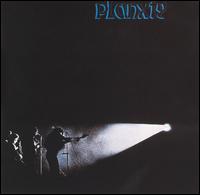
Planxty is the first album by the Irish folk group Planxty, recorded in London during early September 1972 and released in early 1973.

Welcome Here Kind Stranger is a 1978 album by Paul Brady. After leaving The Johnstons, Paul Brady toured with Planxty, but never recorded with them, although he went on to record a duo album with Andy Irvine in 1976.

Cold Blow and the Rainy Night is the third album by the Irish folk group Planxty. It was recorded in Sarm Studios, Whitechapel, London during August 1974 and released the same year. It takes its title from the third song on the album, "Cold Blow and the Rainy Night".

Ordinary Man is the tenth studio album by Irish folk artist, Christy Moore. It features songs like "Ordinary Man", "St. Brendan's Voyage" and "Another Song is Born". The album featured songs by Peter Hames, Johnny Mulhearn, Hugh McDonald, Colm Gallagher and Floyd Red Crow Westerman; as well as some backing vocals by Enya on "Quiet Desperation", "Sweet Music Roll On" and "The Diamondtina [sic] Drover" and some fine uilleann pipes work by Liam O'Flynn.
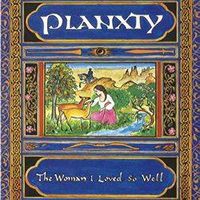
The Woman I Loved So Well is the fifth studio album by Planxty. Like their previous album, After The Break, the album was recorded at Windmill Lane Studios and released by Tara Records. Co-produced by band member Dónal Lunny and engineer Brian Masterson, the album was recorded in April and May of 1980 and released on LP in July of that year. It remains in print on CD and in digital form from Tara to date.

EastWind is an album by Andy Irvine & Davy Spillane, showcasing a fusion of Irish folk music with traditional Bulgarian and Macedonian music. Produced by Irvine and Bill Whelan, who also contributed keyboards and piano, it was widely regarded as revolutionary at the time of recording.
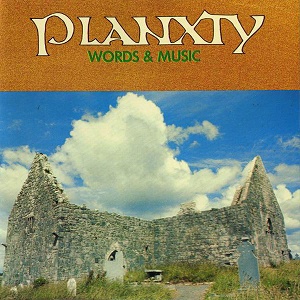
Words & Music is the sixth album by the Irish folk band Planxty, produced by Dónal Lunny and recorded at Windmill Lane Studios in late October and early November of 1982; it would be their only release on the WEA label. In 1989, the album was reprinted by the Shanachie label, who have kept it in print ever since.
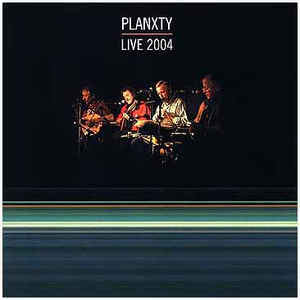
Live 2004 is an album recorded live by the Irish folk band Planxty.

Parachilna is an album by Andy Irvine and Rens van der Zalm, of Irish and Australian songs recorded live in July 2012, while camping in the Australian Outback.
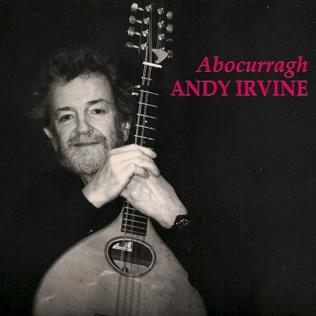
Abocurragh is an album by Andy Irvine recorded in Dublin, Norway, Australia, Hungary and Brittany between February 2009 and April 2010. It was produced by Dónal Lunny who also plays on all the tracks, except the last one.

Way Out Yonder is an album by Andy Irvine, recorded between July and December 1999 and released in January 2000. It was co-produced by Irvine and Steve Cooney.

Live from the Powerhouse is an album rehearsed in six days, starting on 1 March 2002 in the seaside town of Rye, Victoria in Australia, by multicultural group Mozaik featuring Andy Irvine, Dónal Lunny, Bruce Molsky, Nikola Parov and Rens van der Zalm.
Andy Irvine & Dónal Lunny's Mozaik [a.k.a.Mozaik] is a multicultural folk band consisting of Irish musicians Andy Irvine and Dónal Lunny, American fiddler Bruce Molsky, Bulgaro-Hungarian multi-instrumentalist Nikola Parov and Dutch multi-instrumentalist Rens van der Zalm. Their repertoire includes selections of Irvine's own compositions, Irish traditional songs, Southeastern European/Balkan folk music, and Molsky's Old-timey songs and Appalachian fiddling.

Andy Irvine/70th Birthday Concert at Vicar St 2012 is a live recording of a pair of concerts held at Dublin's Vicar Street venue, on 16 and 17 June 2012, to celebrate Andy Irvine's 70th birthday.

Between the Jigs and the Reels: A Retrospective is a two-disc anthology by the Irish folk band Planxty. It includes a 17-track CD and a 36-track DVD with over two hours of previously unreleased footage (1972–1982) from RTÉ archives.
















